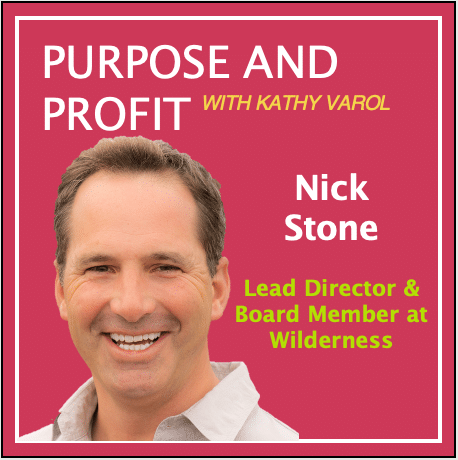Show Notes:
Nick Stone is a Lead Director and Board Member for Wilderness. Known for its once-in-a-lifetime safari experiences, Wilderness was founded in Botswana in 1983 with the goal of introducing visitors to the country’s natural beauty while protecting the environment and providing local jobs. Today, the company has more than six million acres of land under its stewardship and provides an economic support system for the communities where it operates, creating durable, well-paying jobs for roughly 2,600 people from more than 20 different ethnic groups and supporting local farming and infrastructure.
Nick is also a board member of LeddarTech and Kelvin Inc. For his day job, Nick is a Partner at FS Investors, a private investment entity with long-term capital. Nick graduated cum laude from Harvard and was an Arjay Miller Scholar at the Stanford Graduate School of Business.
In this episode we discuss:
✅ How combining tourism with conservation is changing the economic model for protecting nature
✅ How expansive wilderness can be a catalyst for deepening interpersonal connection
✅ The outsized influence of company culture in setting the trajectory of a business
3 episode takeaways (listen to the full episode for a lot more gems!):
1️⃣ There’s an elusive quality to the energy a place holds. Anyone who’s attempted to capture a sunset in a photograph understands how it pales in comparison to the real thing. It’s a mere two-dimensional representation of an experience that’s inherently three-dimensional and engages all five senses.
Nick mentioned the difficulty of articulating the essence of a journey with Wilderness, and I can’t help but think there’s a similar challenge at play here. How do you convey the profound experience of venturing into the unspoiled wilderness, where the world still echoes with the rhythms of millennia, when our daily lives have drifted so far from that primal connection? It’s akin to stepping back in time.
***
2️⃣ Exposure to different cultures is a transformative journey of self-discovery. As we engage with diverse customs, beliefs, and perspectives, we gain valuable insights into the human experience, fostering a deeper awareness of our own values and biases. Through these experiences, we become not only more culturally sensitive but also more compassionate and empathetic individuals, contributing to a more harmonious and interconnected world.
* * *
3️⃣ The tragedy of the commons occurs when individuals, acting in their self-interest, deplete shared resources. It’s a collective action problem that often arises with public goods—like open wilderness—where individuals have an incentive to exploit the resource to their own advantage. We see this with deforestation across nations, overfishing the oceans, and the shrinking African wilderness.
The business model Wilderness has created develops a more attractive alternative to the tragedy of the commons by using the natural resources of the African wilderness to educate on the importance of conservation, to earn funds necessary to support the conservation of the land, and to increase economic opportunity for local communities through well-paying jobs.
Where else can we change the economic model away from the tragedy of the commons—which in the short term profits a few—to a model that values community building, increased access and education, and protecting resources for generations to come?
References:
- Connect with Nick on LinkedIn
- Wilderness website
- UNESCO page about Okavango Delta
- Children in the Wilderness
- Civilized to Death: The Price of Progress by Christopher Ryan
- The Rise Fund

